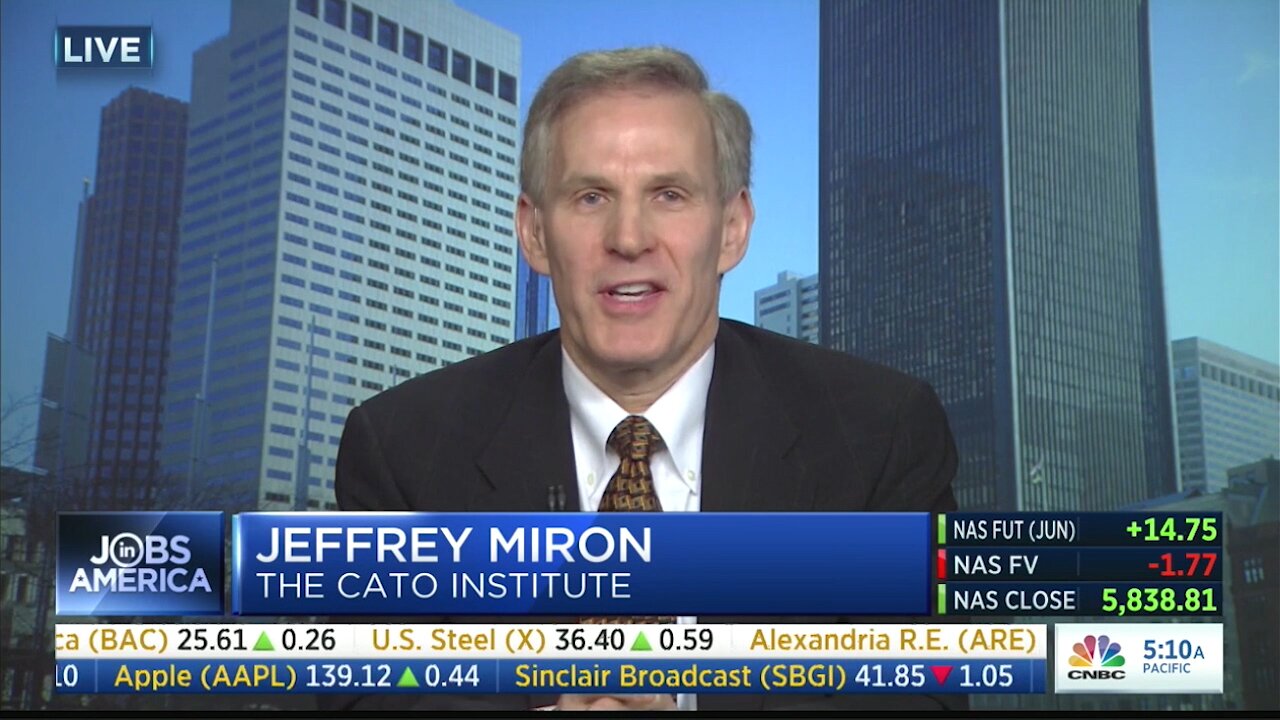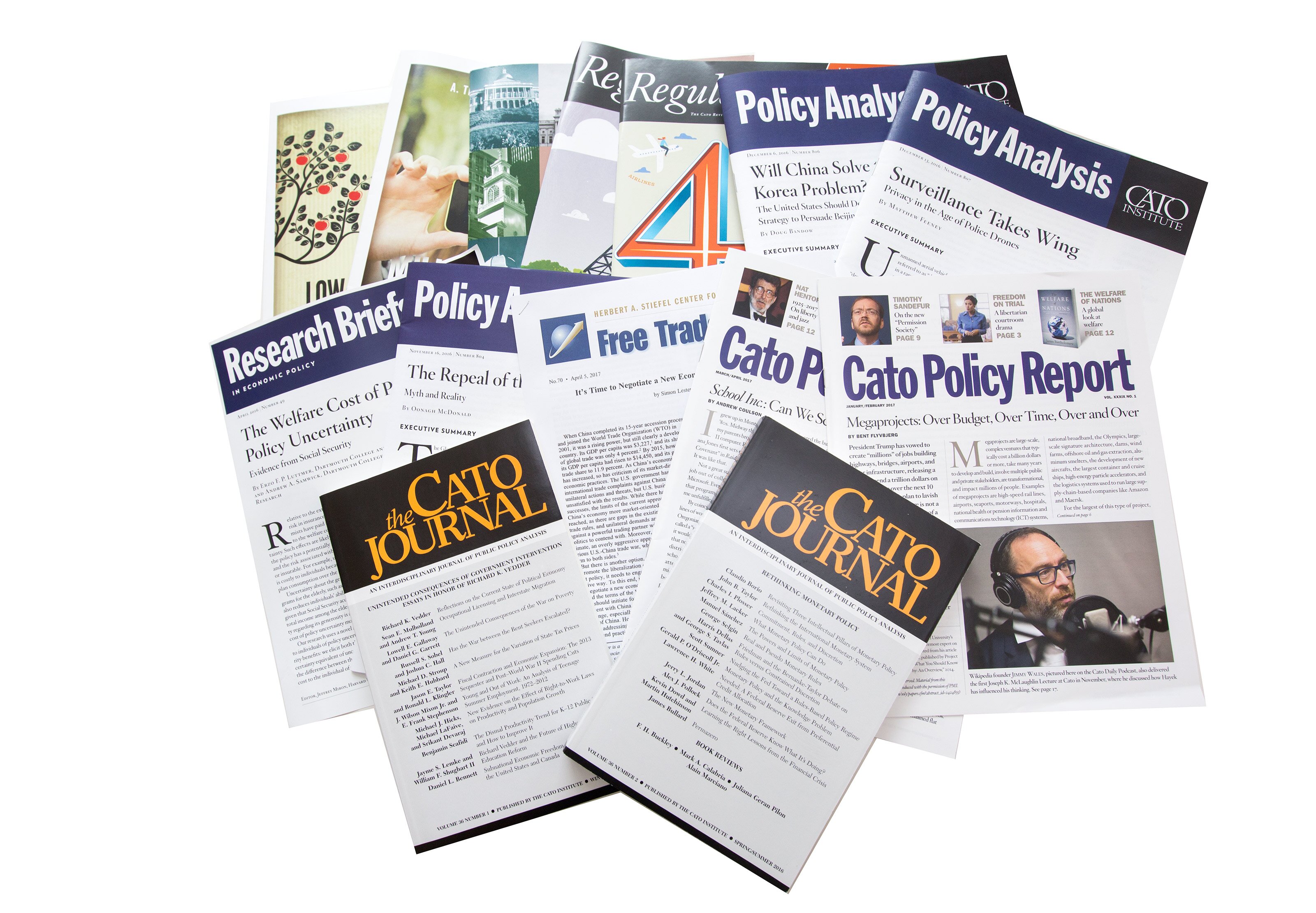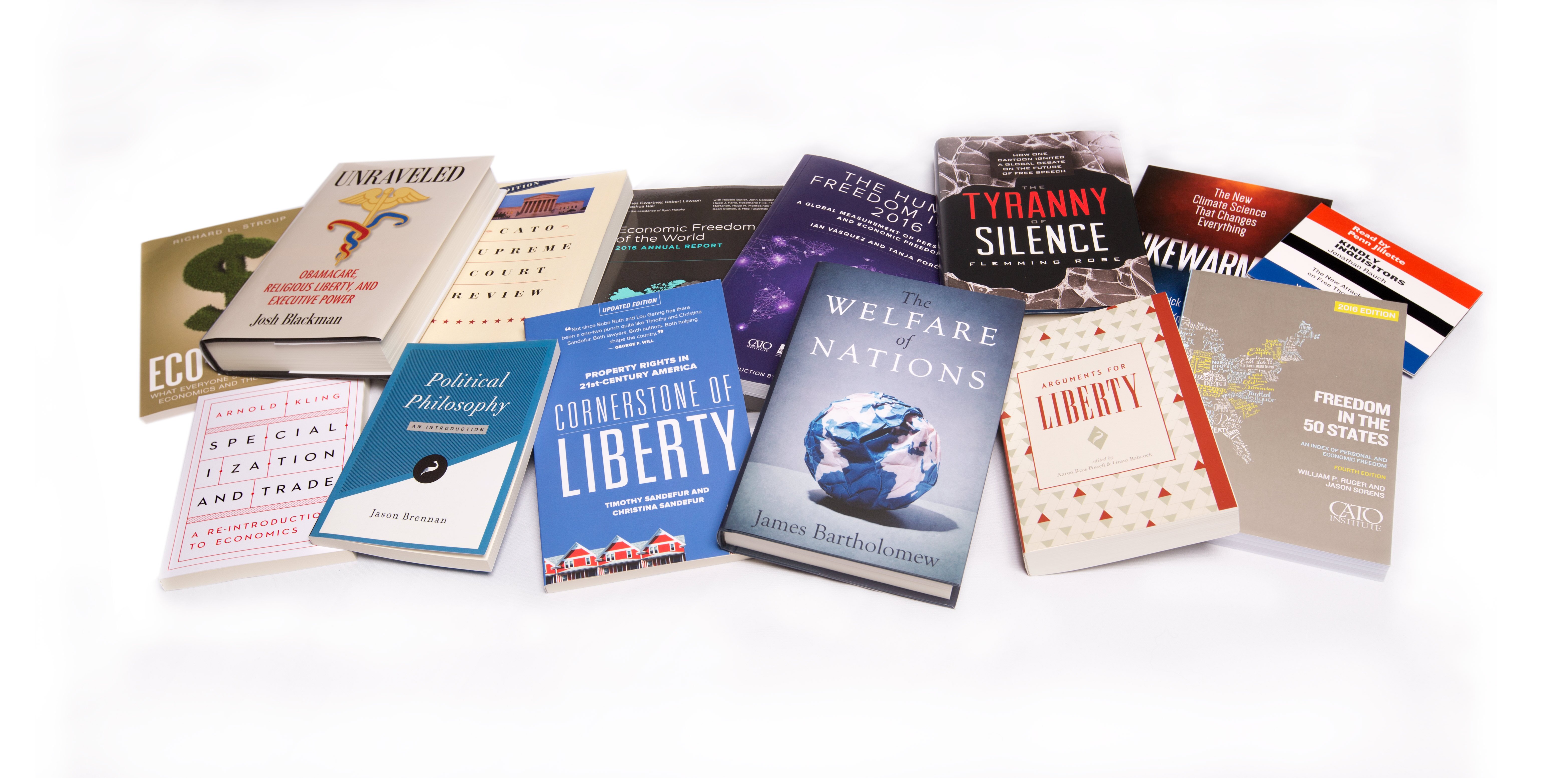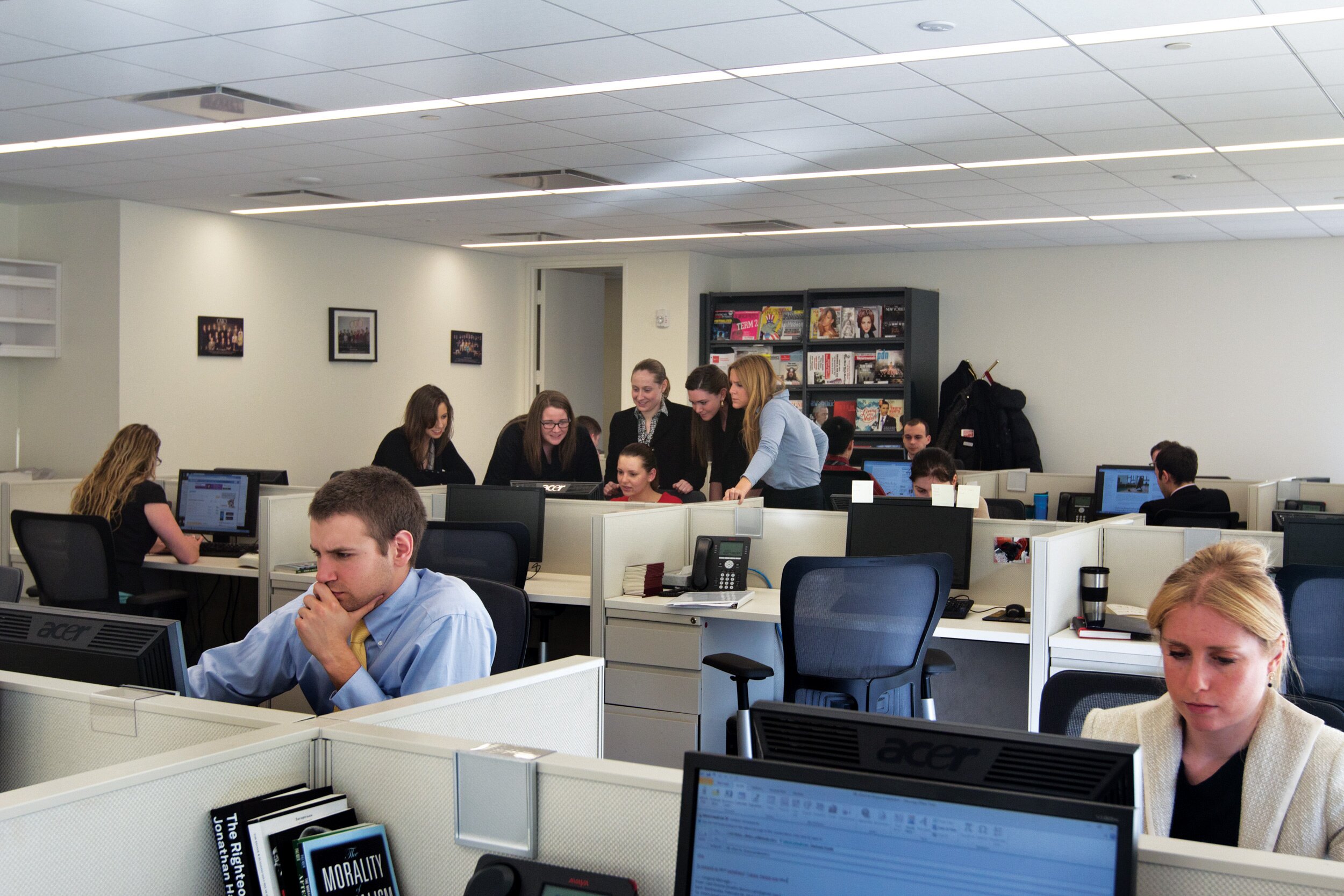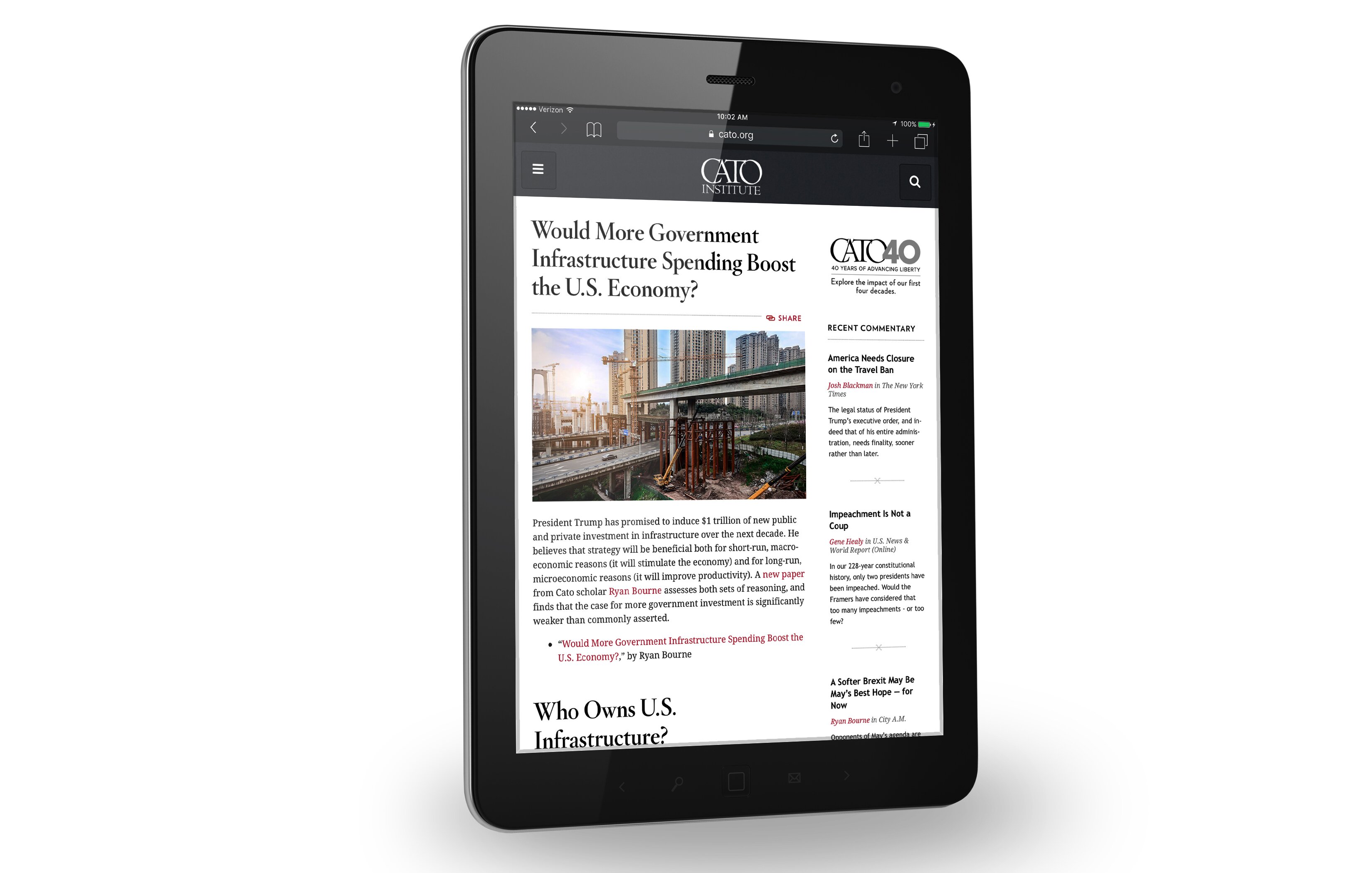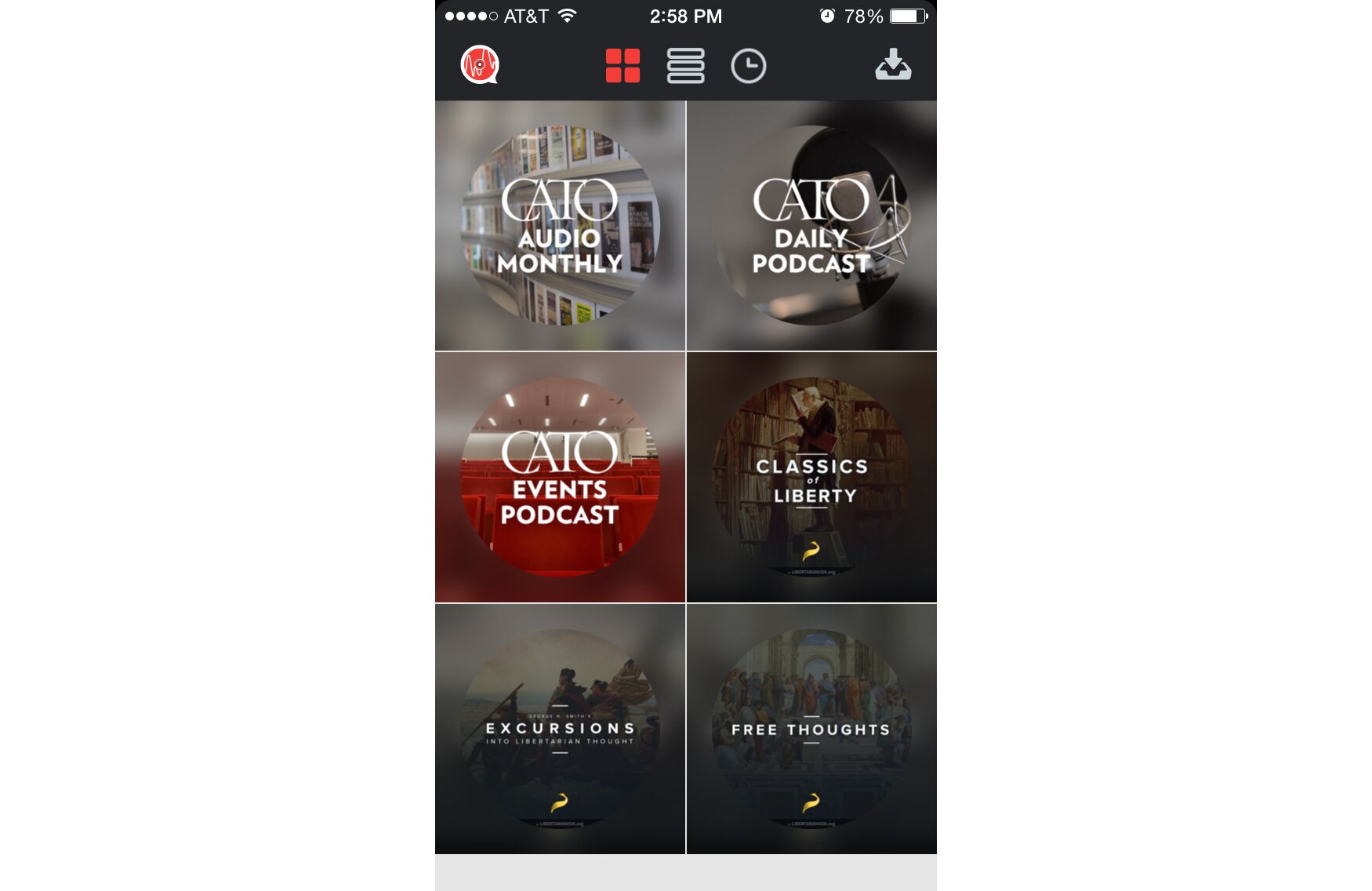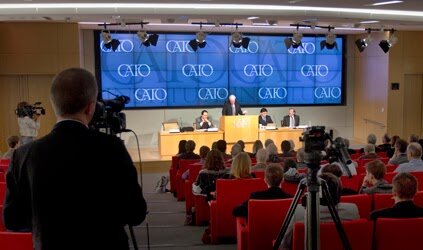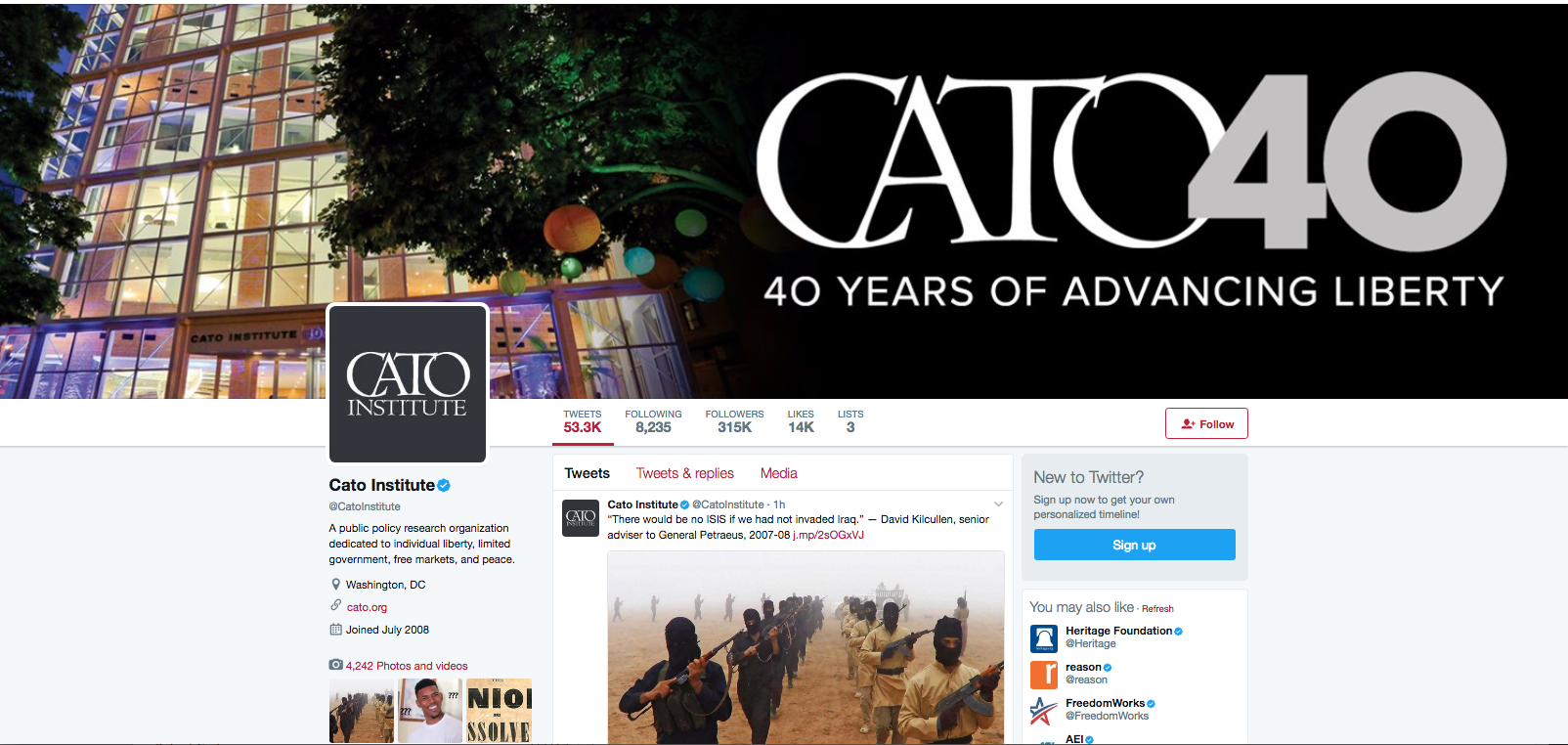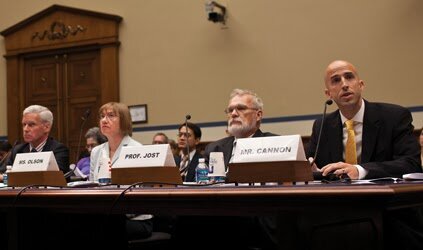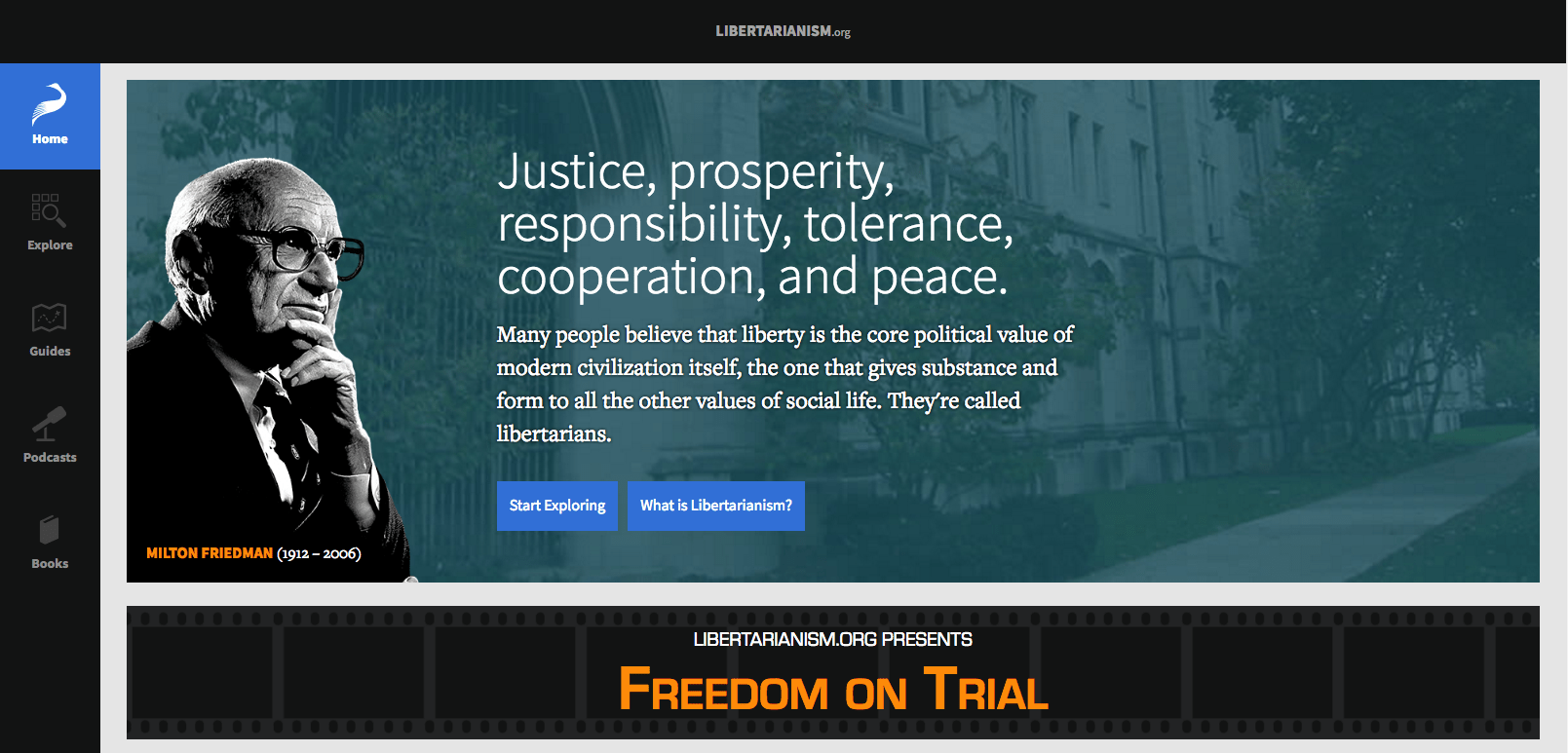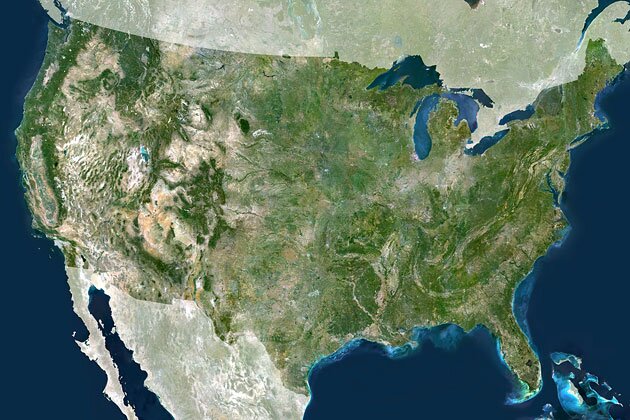Cato’s ability to connect with diverse audiences and commitment to our nation’s founding principles ensures libertarian values are present in public policy debates. Below are details about Cato’s daily work, reflecting the shared dedication of our scholars, staff, and Sponsors. In addition, we hope you’ll take an opportunity to first view this short film about Cato.
Media Appearances
Cato scholars annually participate in upwards of 2000 television, radio and online interviews, and are regularly cited in broadcasts and news articles. The on-going and increased media presence of Cato scholars underscores the value their independent and nonpartisan perspectives bring to policy issues and breaking news items.
Op-Eds
Cato scholars play a key role in educating leaders, decision makers, and the public through sharply crafted and insightful op-eds — over 1500 annually — regularly published and reprinted in newspapers and online news sites across the United States.
Innovative Research and Publications
Dozens of meticulously researched policy studies are published every year on key public policy topics, as well as the highly respected Cato Journal and Regulation magazine. With sales and distributions of print editions in the tens of thousands, these publications are downloaded from Cato.org more than 4 million times annually.
Publishing Books of Enduring Value
Books from the Cato Institute Press have been praised by Nobel Laureates, newspapers, professional publications, and readers worldwide. In addition, books published by the Press’s Libertarianism.org imprint detail libertarian philosophy, history and thought. Audiobook editions of key Cato books are now available through Amazon, Audible.com, and iTunes.
Student Programs
Cato’s prestigious and highly selective Internship program draws thousands of applicants each year for the more than 100 available positions. Also, through a wide array of programs and resources that inform, educate, and activate, Cato continually works to attract and energize liberty-minded young people. Cato hosts special seminars for students that focus on contemporary issues of particular concern to young people; and through peer-networks, in-person events, campus visits, and online programming, brings together students, interns, young professionals, and policy experts.
Cato’s Global Reach
Cato has a multifaceted commitment to advancing solutions for individual rights, personal freedom, and ending poverty across the globe. The Institute’s Center for Global Liberty and Prosperity presents an array of events, maintains HumanProgress.org to demonstrate the relationship between freedom and flourishing societies, and partners with foreign think tanks on The Human Freedom Index and the Economic Freedom of the World Index. Also, international students are key to Cato’s internship program, which exposes these young people to the knowledge and network necessary to advance liberty in their home countries.
Maximizing Online Resources
With over 14 million visitors annually, Cato.org provides resources for individuals and organizations in the United States and around the world. In addition, Cato maintains a number of subject-specific websites, including: DownsizingGovernment.org, HumanProgress.org, FreedomInThe50States.org, PoliceMisconduct.net, Overlawyered.com, the monthly online journal CatoUnbound.org, and ElCato.org, Cato’s Spanish language site.
Strategically Using Multimedia
Cato’s online multimedia resources include podcasts, event videos, home study courses, eBooks, CatoAudio, TV and radio highlights, the free CatoAudio App, which provides instant access to all Cato and Libertarianism.org podcasts, and more. Cato’s digital strategy makes use of the latest technological advances and links Cato’s work with viewers and listeners across the globe. As a result, there are over 11 million downloads annually of Cato’s podcasts, over 3 million downloads of Cato’s videos, and over 30,000 subscribers to Cato’s YouTube channel.
Public Events
Cato offers a wide array of events throughout the year — full day conferences, book and policy forums, film screenings, online programs, and more, where attendees hear from leading authorities, members of Congress, authors, scholars, policy leaders, and engage each other in discussion. Over 10,000 participate in these programs annually — onsite and via live-streaming at Cato.org/Live — and over 200,000 access Cato’s online video events archive and event podcasts each year.
Cato’s Digital Community
Cato’s digital community — including Facebook, Twitter, Instagram, Google+, Tumblr, and LinkedIn — now exceeds over 800,000 individuals, and serves as a bridge for nearly 4 million visits to Cato’s website each year. By offering compelling and innovative content, Cato is able to continually connect ideas and perspectives with a rapidly growing audience.
A Respected Presence on Capitol Hill
Cato scholars regularly provide congressional testimony before legislative committees at the federal and state level. In addition, over 1500 legislative staff annually attend the more than two dozen briefings presented by Cato on key policy issues — which often include the participation of members of Congress.
The Supreme Court
The Cato Institute is one of the biggest filers of amicus curiae (Latin for “friend of the court”) briefs in the Supreme Court.In all its briefs, Cato maintains an unwavering commitment to articulating for the Court how the principles of liberty and a commitment to the original public meaning of the Constitution should guide their decisions.
Honoring the Constitution
With over six million copies in print, Cato’s acclaimed Pocket Constitution can be seen at Congressional floor debates, press conferences, judicial chambers and in classrooms across the country. It has been distributed to members of the U.S. military around the world, and is sold online and in stores across the country. In addition, the Pocket Constitution is available in Spanish and Arabic bilingual editions.
Libertarianism.org
A project of the Cato Institute, Libertarianism.org is dedicated to the exploration of libertarian philosophy through original material, archived footage, podcasts, reading guides, commentary, books, and more – for those new to libertarian ideas and for those with advanced knowledge who wish to learn more about specific topics.
State & Local Engagement
Cato scholars routinely engage with public policy experts and leaders at the local and state levels. In addition to providing legislative testimony on issues of critical importance to the states, scholars participate in conferences and summits, interact with state-based think tanks, and engage with other organizations on issues of shared interest. In recent years Cato’s impact in the states has been most evident in debates over budgetary and fiscal policy, criminal justice reform, the Drug War, health care, Medicaid expansion, police militarization, and transportation policy, among other issues.
